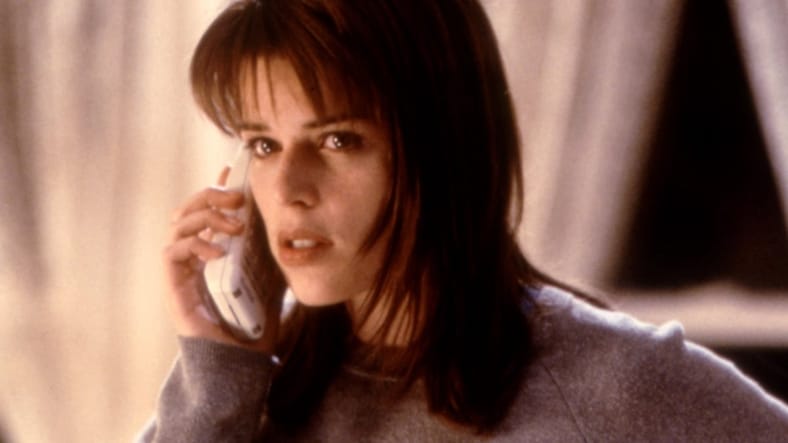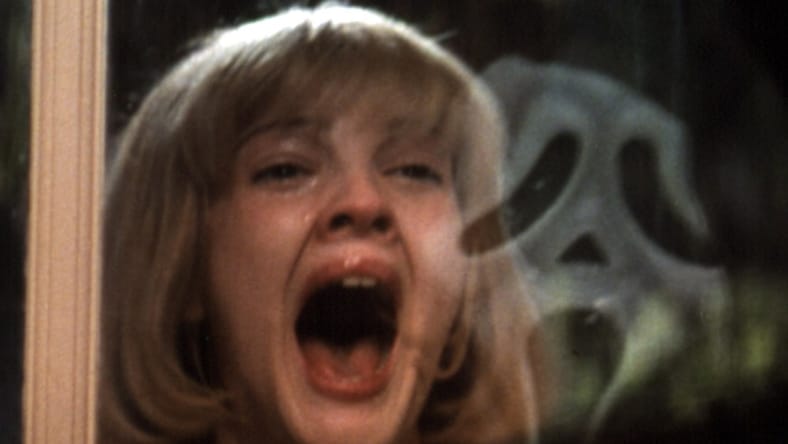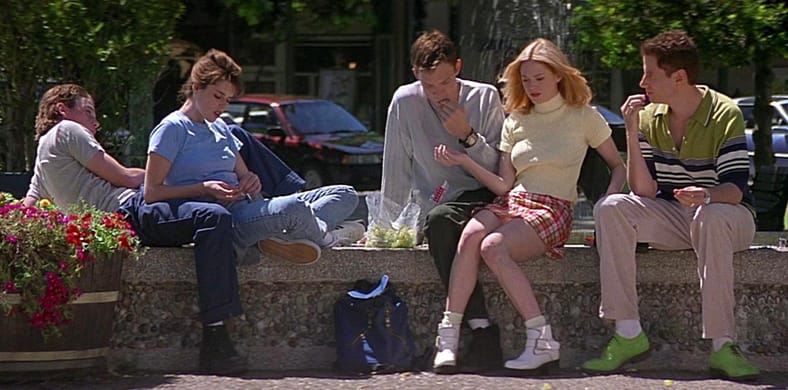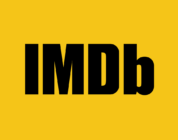I watched Scream again this weekend. I don’t have an exact count, but I’ve definitely seen Wes Craven’s slasher classic at least a hundred times, if not twice as many more. Sure, it’s no match for that one Letterboxd user who has allegedly logged Bones and All nearly 1,000 times (dubious numbers, but fascinating), though for as long as I can remember, I’ve been watching Scream pretty regularly. And as Scream comes to an end, it just makes sense to put Scream 2 and Scream 3 on next. I love the entire franchise, including Radio Silence’s rebooted sequels, but that original trilogy remains unmatched. So much so, in fact, I’m convinced Scream might be the most rewatchable horror movie of all time.
Distressing Trends
That’s a bold claim, and also a pretty nebulous one. After all, rewatchability isn’t precisely a clear metric, though Letterboxd has ranked Scream as the Number One “Most Obsessively Rewatched Horror Film,” so there is some data to back up my claim. Scream didn’t log 2.2 million views on the app for nothing, OK? This isn’t just about the numbers, however. It’s also about “Why?” There are decades of great horror movies out there, some arguably better than Scream (not to me, but to the wider culture). Among them, plenty have yielded more cultural cache, commanding larger box office profits and stronger streaming numbers. Yet, I’m not alone in revisiting Scream time and time again, even if the tragic news is that Scream will likely be the last of its kind.

Deloitte’s 2025 Digital Media Trends report, which you can read in full here (with a drink in hand), is a distressing augur for the future of moviemaking and our collective appreciation for the form and narratives therein. 56% of Gen Z respondents say social media content is more relevant to them than traditional content, and the same generation holds social media creators in higher regard than conventional Hollywood personalities. Despite an average of 6.9 hours a day spent consuming media, considerably less time is spent on traditional media (i.e., film and television) than older generations. Scream can’t compete with Subway Surfers.
The broad climate shift isn’t an intrinsically bad one. Rationally, I think expanding and evolving forms of media are a good thing. A richer environment opens up new opportunities for diverse voices to share their stories, no matter the form, with a wider audience than ever. Yet, concurrently, that volume of Capital M Media has rendered more traditional forms moot—new attitudes are iconoclastic to the aging classics. Connection is singular, and the process is never the same for everyone, but tethering oneself to a defining, formative film is more challenging with so much stuff competing for an audience’s attention at any given time. Rewatches are incompatible with the new landscape that treats media as a brick or disposable gateway to whatever comes next.
It’s a Scream, Baby
And Scream, for as longstanding as that franchise has been—my entire life, really—, it was never really about what came next. The success was unprecedented, and Scream 2 remains a famously swift production, arriving in theaters less than a year after the original first premiered. Scream 2 is a masterclass, and I remain certifiably impressed that the sequel matched the original in almost every way despite a truncated production time, though Scream 2 was never the goal of Scream. Imagine that. A standalone horror movie detached from franchise expectations.

Scream is the complete package. While it’s fun to pick apart the broader lore implications now, at the time, and what lends itself so well to a rewatch, is how self-contained the entire enterprise is. Scream is at its heart a murder mystery, a bloodier, more self-aware take on Agatha Christie and Jessica Fletcher. And like the latter, Cabot Cove never saw the same murder twice. It’s easy to tune in and lose yourself in the serial slayings of Woodsboro without the additional weight of canonical expansions.
It certainly helps, too, that Scream is, well… Scream. It’s not just a classic, but by my own personal definition, the perfect scary movie. It’s meaningful without being heavy, consistently funny even after dozens of watches, and gorgeously staged. Craven’s direction is the best it’s ever been in Scream, and watching Sidney Prescott scramble to escape the Macher house never ceases to impress me. The pure, technical filmmaking is that engaging, and I’ll never tire of studying it.
While Gen Z might not connect with legacy players quite so much, Sidney Prescott remains the best final girl there ever has been, largely because she’s so organic. Scream is all about the tropes, though it’s one of the few that’s managed to reinvent the most famous of them all without ceaselessly calling attention to it (love You’re Next, but that’s the movie’s whole bit).

Presently, I own Scream on VHS, DVD, and Blu-ray. Growing up, we had the VHS, and the era of pricey and limited physical media lent itself especially well to horror fixation. I didn’t have access to reams of new shows and movies to watch, constrained by the tapes my parents chose to purchase. So, I watched Scream. And then I watched Scream again. Now that Scream is streaming on Max, this past weekend, yeah, I watched Scream again. The movie is always playing somewhere, and even when it’s not, I have no shortage of means by which to lock in. It’s a scream, baby.
There are plenty of other horror movies I rewatch. Trick r’ Treat and Halloween are October staples, and it wouldn’t be December without Black Christmas and Krampus. But Scream is untethered to the season. It’s an anytime movie, and that time is almost always right damn now. As a lover of the genre, I earnestly think it’s important, too. Movies are as much our stories as they are those of the creators, and without love and compulsion, those stories dissipate. While I grieve the thought of a generation growing up without the anchor of a favorite movie, it’s a legacy I hope to continue. My mom got me into Scream. I’ll do the same for The Next Generation. Hey, that’d make a pretty good horror sequel subtitle.
And for fun, check out the Dread Central Staff picks for their most rewatched horror movie:
Mary Beth McAndrews: 30 Days of Night
Josh Korngut: Sleepy Hollow
Tyler Doupé: The House on Sorority Row
Sharai Bohannon: When a Stranger Calls (1979)
Jon Condit: The Evil Dead (and its sequels)
Categorized:Editorials





